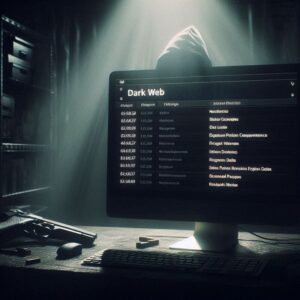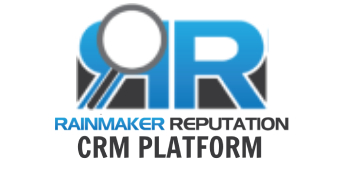Understanding Dark Web Investigations: A Deep Dive into Its Intricacies
The Dark Web is an enigmatic segment of the internet, shrouded in secrecy and largely inaccessible via conventional search engines. To penetrate this hidden network, users must deploy specialized software, unique configurations, or specific permissions, enhancing its allure and mystery. Characterized by high levels of user anonymity and untraceability, this shadowy domain is a hotbed for numerous illicit activities. Often associated with unlawful operations such as drug trafficking, arms sales, and human trafficking, it also serves as a nexus for cybercriminals who trade in stolen personal data, credit card information, and other sensitive materials. Within this clandestine environment, users can partake in illegal transactions, join forbidden forums, and connect with communities that operate outside legal boundaries, all while feeling shielded from potential detection by law enforcement.
In stark contrast to the conventional surface web, the Dark Web is built on a complex framework that expertly obscures users’ identities through advanced encryption techniques and multiple layers of anonymity. To access this hidden digital realm, most users rely on specialized software like Tor (The Onion Router), which anonymizes online activities by routing internet traffic through a network of volunteer-operated servers. This intricate routing method greatly complicates the efforts of anyone attempting network surveillance or traffic analysis, making it exceptionally challenging to trace a user’s location or actions. Although the Dark Web can function as a secure communication platform for whistleblowers and political dissidents, its infamous reputation primarily arises from its associations with criminal enterprises and illegal activities, posing significant challenges for law enforcement agencies.
Essential Tactics for Safely Exploring the Dark Web
- Understanding that the Dark Web is a concealed part of the internet requiring specific software for access, and is frequently linked to illicit activities.
- Recognizing that navigating the Dark Web entails considerable risks, including identity theft, financial fraud, and exposure to explicit content.
- DarkSearch emerges as a vital tool that empowers users to explore the Dark Web securely through its anonymous search engine capabilities.
- Users may encounter a mix of illicit products and services, stolen data, black market activities, and even legitimate content on the Dark Web.
- To ensure safety during Dark Web exploration, utilizing a secure VPN, exercising caution with links, and carefully managing personal data sharing are crucial.
Identifying and Addressing Risks Linked to the Dark Web
The Dark Web poses significant risks not just to individuals but also to society at large. It has evolved into a prominent hub for criminal activities, including the rampant sale of narcotics, firearms, and stolen personal information, which fuels various criminal organizations. This perilous environment increases the likelihood of identity theft, financial fraud, and other cybercrimes that can severely impact unsuspecting users. The anonymity afforded by the Dark Web complicates law enforcement’s efforts to track and apprehend offenders, providing cybercriminals with a deceptive sense of security.
Moreover, the Dark Web plays a troubling role in facilitating human trafficking and exploitation. Its unregulated and anonymous nature creates a sanctuary for traffickers, leading to a disturbing rise in the online exploitation of vulnerable populations, particularly young individuals who may be coerced into sex work or other forms of modern slavery. Additionally, the Dark Web often acts as a breeding ground for extremist ideologies and terrorist propaganda, posing serious threats to national security and public safety. This reality underscores the necessity for ongoing vigilance and proactive measures from society to combat these dangers.
The overwhelming presence of illicit content and activities on the Dark Web has extensive societal implications. It cultivates a culture of lawlessness that undermines efforts to establish a safe online environment. Therefore, it is imperative for users to remain cognizant of the inherent dangers associated with the Dark Web and take proactive steps to protect themselves from its potentially harmful impacts.

Expert Guidance for Securely Navigating the Dark Web with DarkSearch
DarkSearch is an innovative search engine meticulously designed to empower users to explore the Dark Web in a secure and private manner. This advanced tool enables individuals to search for specific content without compromising their anonymity or personal privacy. DarkSearch employs robust encryption and privacy safeguards, ensuring that users can navigate the Dark Web without the looming threat of being tracked or monitored by malicious entities.
One of the standout features of DarkSearch is its capacity to provide users with a carefully curated selection of verified and trustworthy Dark Web websites. This functionality is crucial for assisting users in avoiding illegal or harmful content, instead directing them toward reputable resources and information. Furthermore, DarkSearch integrates built-in security measures designed to protect users from fraudulent sites and phishing scams, significantly mitigating the risk of falling victim to cybercrime during their browsing experience.
In addition to enhancing security, DarkSearch unlocks a wealth of information and resources that are typically inaccessible on the surface web. This includes niche forums, marketplaces, and communities dedicated to a wide array of interests, allowing users to connect with like-minded individuals in a secure and private environment. By leveraging the capabilities of DarkSearch, users can responsibly explore the Dark Web, navigating around the pitfalls associated with illegal activities while still accessing valuable information and insights.

Exploring the Diverse Range of Content Available on the Dark Web
The Dark Web offers an extensive variety of content, encompassing both legitimate and illegal activities. Its notorious reputation primarily arises from its function as a marketplace for illicit goods and services, including the exchange of drugs, firearms, counterfeit currencies, and stolen personal data. This secretive environment is particularly enticing to criminals seeking to conduct transactions while minimizing the risk of detection by law enforcement.
Beyond these illegal marketplaces, the Dark Web also hosts forums and groups that engage in discussions on a myriad of topics, including hacking, cybercrime, political activism, and whistleblowing. These platforms provide individuals with a secure space to engage in controversial discussions and share information without the fear of censorship or surveillance. However, they can also become breeding grounds for criminal behavior and extremist views, posing significant threats to public safety and national security.
Despite its affiliations with illegal activities, the Dark Web serves essential functions. It offers a secure platform for whistleblowers and activists to disseminate critical information and bring attention to issues of corruption and human rights violations without the threat of retribution. Additionally, the Dark Web harbors a wealth of resources and information that may be censored or unavailable on the surface web, rendering it an invaluable tool for those seeking uncensored knowledge and alternative viewpoints.
Crucial Safety Measures for Navigating the Dark Web
While exploring the Dark Web exposes users to various risks, numerous strategies exist to safeguard against potential dangers. Utilizing specialized software like Tor enables secure browsing of the Dark Web. Tor encrypts your internet traffic, effectively concealing your location and online activities from any potential surveillance or traffic analysis, which empowers users with a greater sense of privacy.
Practicing caution is paramount during Dark Web exploration. It is vital to avoid clicking on unknown links or downloading unexpected files, as the Dark Web is filled with malicious sites designed to steal sensitive information or infect users’ devices with malware. Users can enhance their security by limiting their visits to trusted and verified websites while navigating this hidden digital landscape.
Moreover, individuals should refrain from sharing personal information or engaging in transactions on the Dark Web. The inherent anonymity of this environment complicates the verification of merchants or buyers, significantly increasing the risk of scams and fraud.
Employing a virtual private network (VPN) can greatly bolster security while exploring the Dark Web. A VPN encrypts your internet traffic and masks your IP address, making it more challenging for malicious actors to trace or monitor your online activities.
By adhering to these safety guidelines and exercising vigilance during Dark Web explorations, users can significantly reduce their exposure to potential threats and protect themselves from the dangers associated with cybercrime.
Navigating Legal and Ethical Considerations When Using DarkSearch
When utilizing DarkSearch or engaging with the Dark Web, individuals must be acutely aware of the legal and ethical implications involved. Accessing certain types of content or participating in specific activities on the Dark Web may violate local laws or ethical standards, potentially leading to serious legal consequences or moral dilemmas.
A crucial legal consideration when using DarkSearch is the risk of encountering unlawful content or activities. Users must recognize that accessing illegal marketplaces or engaging in criminal activities on the Dark Web can result in severe legal repercussions, including prosecution and imprisonment. Therefore, exercising caution and adhering to local laws while exploring the Dark Web is essential to avoid unintentional violations.
Equally significant is the understanding of the ethical ramifications associated with using DarkSearch. Users should be mindful of the dangers of engaging with harmful content or facilitating illegal actions on the Dark Web. This includes avoiding transactions involving illicit goods or services, steering clear of participating in criminal enterprises, and promptly reporting any illegal activities encountered during their exploration.
When accessing sensitive data or discussing controversial topics on the Dark Web, it is crucial to acknowledge the moral implications. Treating such subjects with care and empathy is essential, as it recognizes the potential impact on individuals or communities affected by these issues.
By remaining vigilant and considering the legal and ethical factors while using DarkSearch, individuals can navigate the Dark Web responsibly and safely.

Anticipating Future Trends in the Dark Web: Innovations and Their Implications
The impending landscape of the Dark Web is poised for significant advancements and implications that could dramatically influence its future trajectory. As technology continues to progress, concerns regarding the potential for increasingly sophisticated cybercriminal activities thriving within the Dark Web are escalating. Innovations in encryption techniques, anonymization technologies, and decentralized networks may further complicate law enforcement’s ability to monitor and control illegal activities in this concealed realm.
Moreover, the importance of international collaboration in addressing the challenges posed by the Dark Web cannot be overstated. Given that illicit operations on the Dark Web frequently transcend national borders, the need for cooperative actions among governments, law enforcement agencies, and technology companies is critically important. This includes sharing intelligence, coordinating efforts, and establishing regulatory frameworks to mitigate the risks associated with the Dark Web, highlighting the essential roles played by each entity in tackling this global issue.
Additionally, ongoing discussions surrounding potential government interventions aimed at combating unlawful activities on the Dark Web while safeguarding individual privacy rights are gaining momentum. Striking a balance between addressing cybercrime and protecting freedom of expression and internet privacy presents a complex challenge. As policymakers navigate these intricate considerations, they must prioritize informed decision-making to ensure that legislative measures effectively combat illegal activities on the Dark Web without infringing upon individual rights.
Future developments in the Dark Web will have profound implications for cybersecurity, law enforcement, personal privacy rights, and global security. By staying informed about potential trends and changes, individuals can better understand the evolving landscape of the Dark Web and take proactive steps to protect themselves from its associated threats.
Comprehensive Answers to Common Questions About the Dark Web
What is a Dark Web search engine, and how does it function?
A Dark Web search engine is specifically designed to assist users in navigating the Dark Web, a hidden segment of the internet that is not indexed by conventional search engines. This tool empowers individuals to discover and access concealed websites and exclusive content that is typically unreachable through standard web browsers, thus enriching their exploration experience.
How do dark web search engines operate?
Dark web search engines utilize specialized algorithms to crawl and index content located within the hidden corners of the Dark Web. These engines access concealed websites and extract information, making it searchable for users who wish to explore this hidden digital landscape more effectively and efficiently.
Is using a dark web search engine legal?
Utilizing a dark web search engine is not inherently illegal, as it serves merely as a tool for accessing content on the Dark Web. However, users must recognize that the Dark Web is often associated with illegal activities, and engaging with certain content or participating in unlawful actions may violate the law.
What risks are involved with using a dark web search engine?
Several risks accompany the use of dark web search engines, including exposure to illegal and harmful content, potential malware attacks, and the threat of being targeted by cybercriminals. Exercising caution and implementing appropriate security measures is essential when accessing the Dark Web to mitigate these risks.
Can I access the Dark Web without using a dark web search engine?
Technically, it is possible to access the Dark Web without a search engine by using specialized software like Tor, which allows users to browse anonymously and reach hidden websites. However, utilizing a dark web search engine can simplify the process of finding specific content and enhance navigation through the Dark Web.
References:
Pros and Cons of Internet Usage – Good and Bad Effects. https://thetechprint.com/pros-and-cons-of-internet-usage
Is it Illegal to Access the Dark Web? – Exploring the Dark Corners of the Digital World: A Tale of Mexican Hackers. https://www.hackersmexicanos.com/is-it-illegal-to-access-the-dark-web/
The post Deep Search: Unveiling the Invisible Dark Web appeared first on Ezi Gold.
The Article: Dark Web Exploration: Discovering the Hidden Internet Depths Was Found On https://ai.ezi.gold
The Article Dark Web Exploration: Unveiling the Hidden Internet Secrets Was Found On https://limitsofstrategy.com


13 Responses
Your exploration of the Dark Web truly highlights its complexities and the dual nature of its existence. It’s fascinating to consider how this hidden layer of the internet serves not just as a space for illicit activities, but also as a refuge for those seeking anonymity for legitimate reasons, like whistleblowers or individuals in oppressive regimes.
You’ve touched on an essential point about the Dark Web. It’s often easy to get caught up in the sensational aspects of it, focusing solely on the illicit activities that tend to capture headlines. However, the reality is much more nuanced. The Dark Web can be a sanctuary for those who genuinely need privacy, whether it’s whistleblowers exposing corporate misconduct, dissidents opposing oppressive governments, or individuals simply wanting to communicate freely without fear of surveillance.
You’ve really hit on a crucial aspect of the Dark Web that often gets overshadowed by its more notorious reputation. The notion of privacy as a safe haven for various individuals is intriguing and highlights a fundamental tension in our digital age. It’s fascinating how something designed to protect users can also be exploited for harmful purposes.
You’ve really captured the duality of the Dark Web. It’s fascinating how it serves as both a shadowy abyss for illicit activities and a crucial platform for genuine advocacy and expression. I often think about the individuals you mentioned—whistleblowers and dissidents—who face tremendous risks when speaking out against powerful entities. The anonymity that the Dark Web provides can be a lifeline for them, especially in regimes where their safety is at constant risk.
You’ve touched on a significant aspect of the Dark Web that often gets overlooked amid discussions about its more nefarious uses. The notion that it provides a sanctuary for individuals under oppressive regimes is particularly timely. For many, the Dark Web becomes a vital lifeline—a means to communicate without fear of surveillance or repression. Whistleblowers, activists, and journalists relying on anonymity to share information face immense risks. Without spaces like the Dark Web, their voices might be silenced, depriving the public of crucial insights.
You raise some really compelling points about the Dark Web. It’s interesting how it’s often painted with such a broad brush, primarily focusing on the illegal activities that take place there. Yet, as you mentioned, there’s this other side where anonymity is crucial for people in precarious situations. It makes me think of cases like Edward Snowden, who used technology to expose government surveillance practices—an act that, depending on how you view it, can be seen as whistleblowing or treachery.
Your exploration of the Dark Web really highlights the complexities that come with its anonymity. It’s fascinating yet unsettling how this realm can serve dual purposes. On one hand, it can be a space for whistleblowers and activists to communicate without fear of reprisal; on the other, it is often a haven for nefarious activities.
Your exploration of the Dark Web’s intricate dynamics opens up a realm of discussion that’s often overlooked in mainstream conversations about the internet. The duality of anonymity—both as a shield and a sword—fascinates me. On one hand, it serves as a refuge for whistleblowers and activists operating under oppressive regimes, where every keystroke could endanger their lives. This aspect speaks to the profound ethical considerations surrounding anonymity; it can be a lifeline for those seeking freedom, justice, and truth in environments where such ideals are stifled.
You’ve really touched on an important aspect of the Dark Web that often gets lost in discussions dominated by its more sensationalistic elements. The idea of anonymity as both a refuge and a weapon is indeed complex. It’s fascinating to think about how individuals in oppressive regimes might rely on these spaces to share information, organize movements, or simply seek connection.
You raise a compelling point about the dual nature of anonymity on the Dark Web. It’s wild to think how this digital underworld can serve as a lifeline for those in repressive regimes, where even the smallest act of dissent can have serious consequences. People aren’t just hiding; they’re crafting their own narratives and building communities that might not survive in the light.
Your exploration of the intricacies of the Dark Web reveals a compelling, yet troubling aspect of our digital age. The layered anonymity and the specialized access needed to engage with this hidden network speak volumes about the broader conversations we need to have about privacy, security, and ethics in technology. It’s fascinating to consider how the allure of the Dark Web draws individuals from various walks of life, often highlighting a very human desire for autonomy and a sense of belonging – albeit in some of the most dangerous communities imaginable.
It’s fascinating to explore the intricacies of the Dark Web, especially considering its dual nature. On one hand, it absolutely serves as a substantial hub for illicit activities, as you highlighted, but I think it’s also essential to recognize the complexities and motivations behind its existence. The Dark Web provides a platform for those who need anonymity for legitimate reasons—like activists in oppressive regimes or whistleblowers seeking to expose corruption without facing severe retribution.
You raise an important point about the dual nature of the Dark Web, and it’s a conversation that often gets overlooked in the noise of sensational reporting. There’s a real tension between the Dark Web’s role as a refuge for those seeking anonymity and its exploitation for illegal activities.